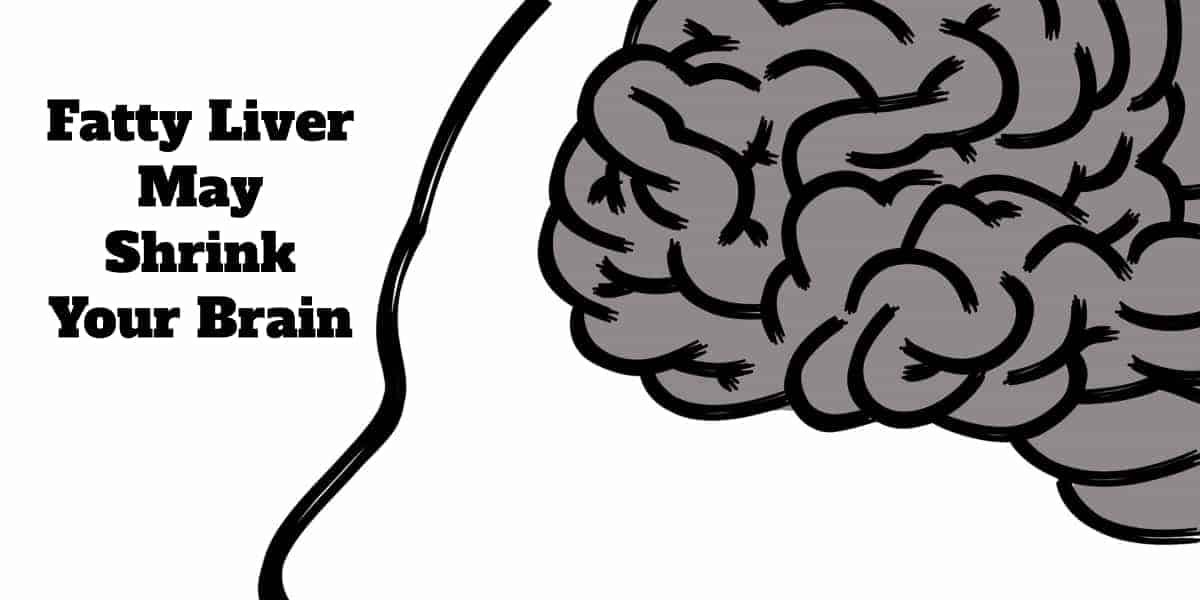We love to report good news on the identification and treatment of NAFLD (non-alcoholic fatty liver disease).
Often, particularly if in the earliest stages (1 or 2), NAFLD is easily treated via lifestyle changes and sometimes, with medication as recommended by one’s physician.
Today, though, the news isn’t all bright. A paper written by Galit Weinstein, University of Haifa, Israel and published in the Psych Congress Network reveals that NAFLD could, in some patients, lead to shrinkage of the brain.
As scary as that sounds, there’s hope. First, let’s take a look at the facts.
- Reduced brain volume was observed in seniors with NAFLD vs. a control group within those tested who did not have NAFLD.
- Only 18 individuals in the study had NAFLD, so the results are to be observed with caution until further studies are produced.
- The brain volume reduction was compared to normal brain reduction as an individual ages.
- Based on the volume of shrinkage, researchers estimated an extra 4.2 years in brain aging for participants in their 60s and 70s and an extra 7.3 years for those under age 60.
- The aging “years” are not truly quantifiable. They are a best estimate based on performance.
- However, the study does appear to back other recent research showing reduced cognitive ability in seniors with NAFLD v. seniors in general good health.
Should you worry?
However, it can’t hurt and might help for you to address your NAFLD now, before damage is done.Obviously. if you have or suspect you have NAFLD, you need to do something about it; that’s a given.
We’re not here to panic you – there is so much that goes into the aging process and the brain is a very complex organ.
So…should you worry? In our opinion, no. But you should look into understanding and treating your NALFD condition, or the habits or health issues that may be leading up to it.
This means you’ll want to see your doctor if you suspect NAFLD, are overweight and/or or have one or more health conditions even if controlled (for example, high blood pressure).
As for the study, Dr. Weinstein stated that though the results may be telling and could serve as a warning to get treatment now, the association is just that: an association. It hasn’t been established at this point that NAFLD causes (or actively contributes to) increased brain shrinkage v. non-NAFLD patients. It’s possible both are caused by something else or that there is some other medical reason for the correlation.
In addition, until the reverse is shown – in other words, until researchers confirm that reducing an NAFLD condition helps rather than harms the brain – it’s difficult to quantify these first tentative results.
“[Results of the study are] extremely important when it comes to brain health,” Dr. Weinstein told reporters. “But it still remains to [be seen] in other studies that improvement in fatty liver disease is associated with lower risk of such brain diseases.”
What You Can Do Right Now
- Stay informed. Research is always updating in the fields of health in general and the liver in particular, so stay on top of studies.
- Don’t be reactionary. Reading scary titles and panicking won’t help you or your loved ones. Make sure all information you’re reading is verifiable through an academic or government health source.
- Stay healthy…or if you’re not, get that way. It isn’t easy to lose weight and start exercising, but even small changes can add up. Start now.
- Make it a family affair. Don’t try to go this alone. If you AND your entire household (if possible – we know, we know; the struggle is real) start to move more and eat healthfully, it will be much easier for you to stick to plan. Don’t think you’re depriving anyone else; in fact, when you teach your children health habits, they benefit for life.
Originally posted 2019-07-30 11:29:26.

